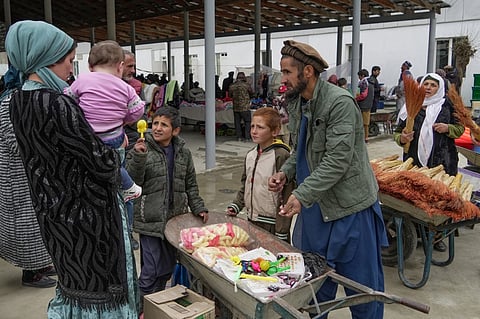
- NEWS
- the EDIT
- COMMENTARY
- BUSINESS
- LIFE
- SHOW
- ACTION
- GLOBAL GOALS
- SNAPS
- DYARYO TIRADA
- MORE

Dushanbe, Tajikistan — On posters across Tajikistan, President Emomali Rakhmon is shown surrounded by an abundance of fruit and vegetables under the slogan: “Let’s ensure food security!”
That goal is a distant prospect in the impoverished Central Asian country as it faces the twin challenges of low agricultural output and climate change.
A third of the Tajik population of 10 million people is malnourished.
And half of all available food is imported, according to the UN World Food Program, meaning that the country’s food security “is at the mercy of brutal fluctuations in price.”
The government has declared food security a “national strategic objective” and Rakhmon, who has been in power since 1992, has urged every family to maintain food reserves that would last for up to two years, just in case.
It is a tall order for Tajiks like Zarif Gaforov, a 60-year-old plumber.
“I cannot make reserves for two years,” he told AFP in the capital Dushanbe. “There is nothing to stock up on — everything would go bad.”
Gaforov said he kept stocks of flour, potatoes, onions and butter, “enough for the winter.”
At a local supermarket, Mavchuda Obedova said she was stocking up on water, flour and grains “as the president advised.”
But stocking up large amounts of food is impossible for most people in Tajikistan, where the average monthly income is less than 200 euros ($217), the lowest of any former Soviet republic.
